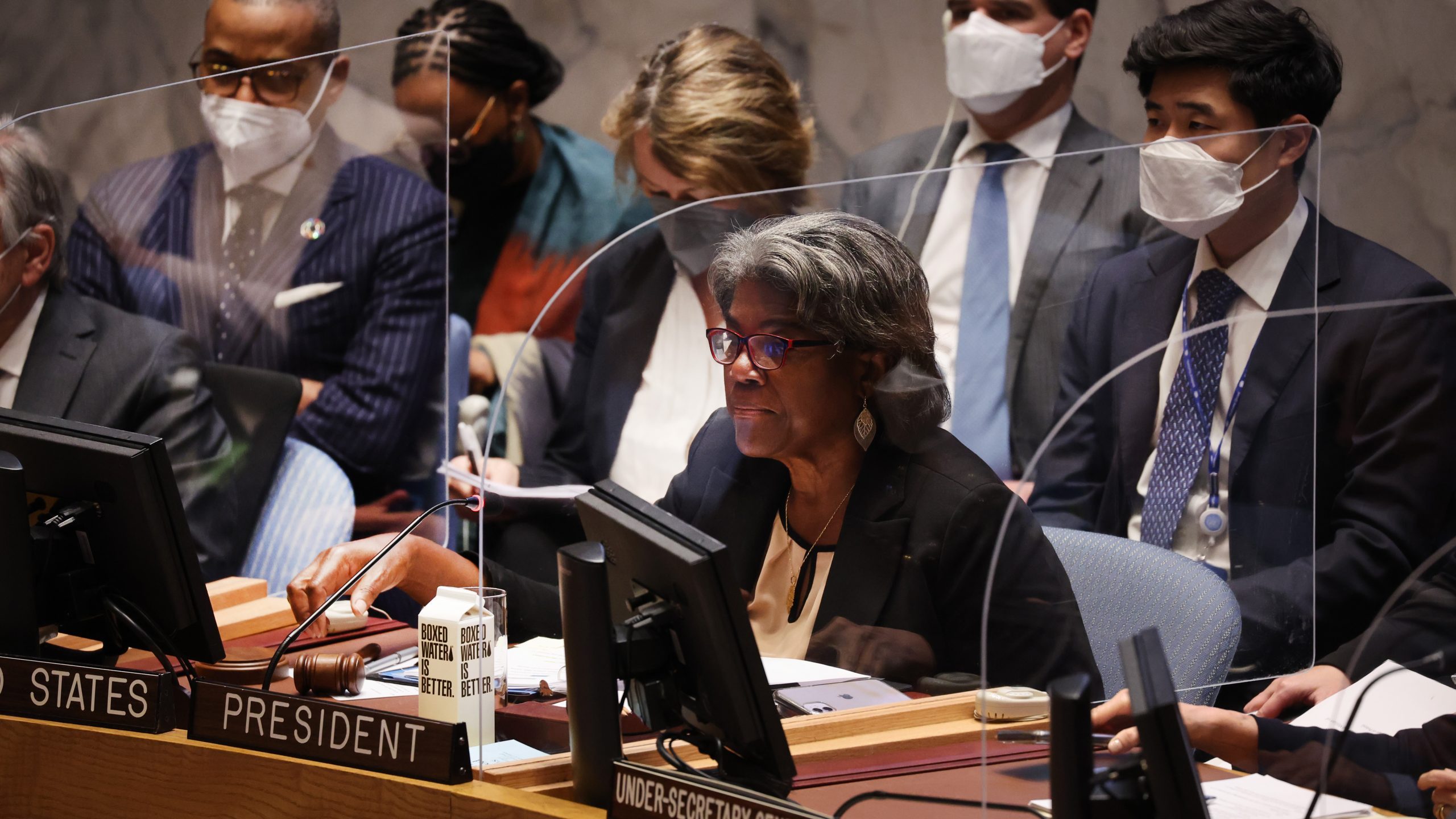Thank you, Mr. President. And thank you, Special Envoy Pedersen for your briefing, and for your continued efforts to attain a sustainable political solution in Syria, including through your diplomacy during High-Level Week. I also welcome the helpful update from Ms. Wosorno. I also want to thank Ms. Jarbawi for her sobering briefing and for everything you and the IRC are doing to expand humanitarian access in Syria.
Colleagues, the United States welcomes the resumption of UN humanitarian assistance convoys through the Bab al-Hawa crossing – a crucial access point that allows aid to reach millions of vulnerable Syrians. If implemented, the understanding Under-Secretary-General Griffiths and his team were able to reach with parties on the ground in northwest Syria and with Damascus will maintain this lifeline.
But we are mindful of the regime’s decades-long history of manipulating humanitarian assistance to all areas of Syria, including its ongoing denial of UN access to the Rukban displacement site. We are also concerned the regime will try to impose new conditions on the UN in the future, especially in the fall and winter, when consent for the three crossings will need to be renewed, and when humanitarian needs will be at their greatest.
This Council must give the UN the support it needs to resist pressure by the Assad regime and maintain unhindered access to all Syrians – for as long as needed. The Syrian people are counting on us in their time of immense need.
And as the single largest humanitarian donor to the Syrian response effort, the United States supports aid through all modalities to reach Syrians in need – including cross-border and cross-line aid – to all areas of Syria.
Colleagues, I want to underscore the importance of continued reporting to this Council on humanitarian and political developments inside Syria, in line with Resolution 2139. On the political front, we are monitoring reports about popular protests in Syria, and we continue to support the Syrian people’s call for peace, dignity, security, and justice.
The United States also supports the Syrian people’s ability to exercise the rights of peaceful assembly and freedom of expression. The renewed protests in Syria underscore the need for a Syrian-led political solution. And we continue to advocate that implementing Resolution 2254 remains the only viable path to ending the conflict.
To that end, we urge the Syrian regime to engage meaningfully in the political process called for in Resolution 2254 by returning to the Constitutional Committee, which has not met in over a year. While simply holding another meeting of the Constitutional Committee will not end the conflict, we believe the regime’s participation would be an important signal of its intent to return to the political process.
And U.S. sanctions will remain in place until, at minimum, there is concrete, measurable progress toward a political solution.
There is no shortage of conflicts and crises on the Council’s agenda, but we must not let Syria fall to the wayside. Not as humanitarian needs continue to spike; not as peace efforts continue to stall.
When I traveled to the border of Türkiye and Syria last year, a Syrian refugee told me that she was worried the world would forget about the plight of her people. And I told her the United States would not let that happen. And this Council must send the same message to all Syrian people.
Thank you, Mr. President.


